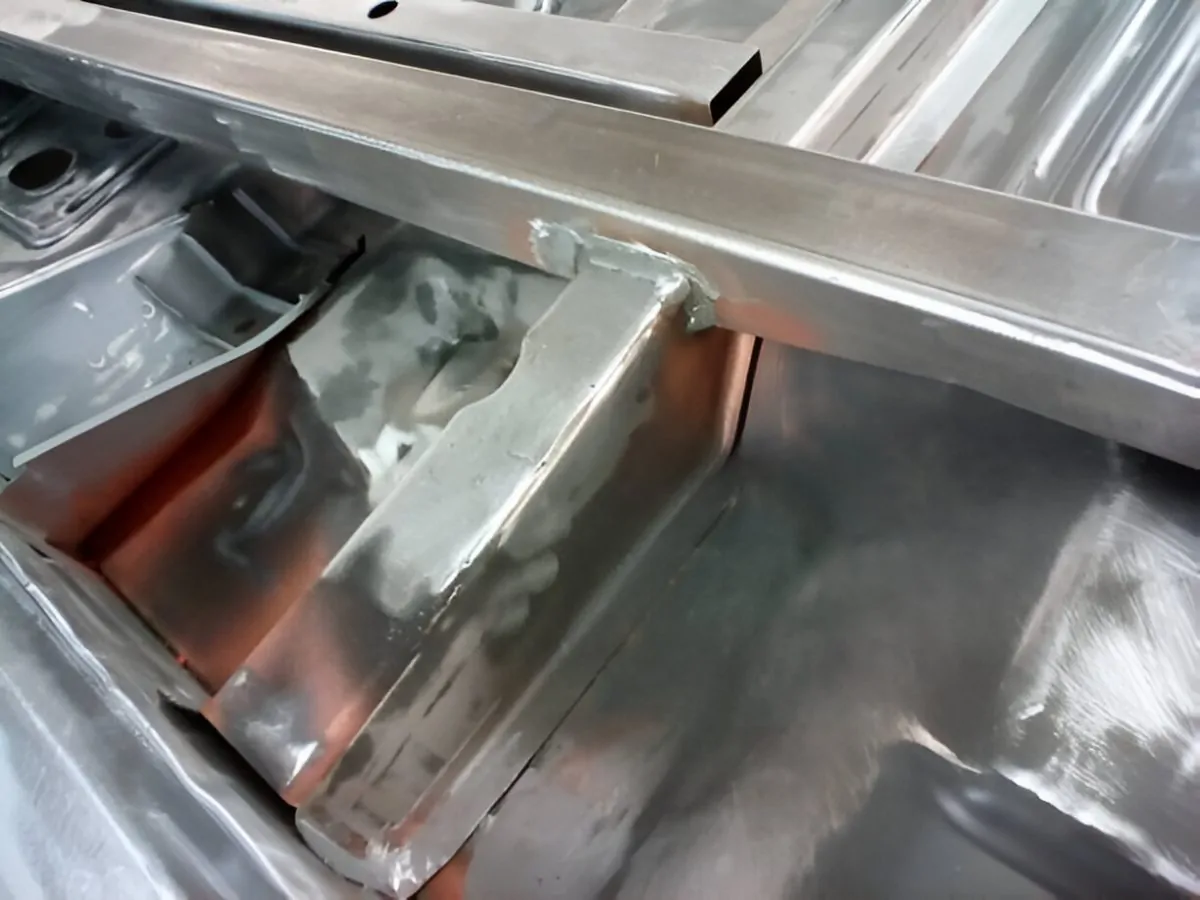
When repairing or restoring a car, one crucial factor to consider is the thickness of the steel used for the body. Selecting the correct thickness ensures that the repairs are durable and maintain the vehicle’s structural integrity. In this guide, we will explore the different steel thicknesses used for car bodies, helping you make informed decisions for your repair projects.
Understanding Steel Thickness
Steel thickness for car bodies is typically measured in gauges. The gauge number indicates the steel’s thickness: the lower the number, the thicker the steel. In the automotive industry, common gauges are 18, 20, and 22. Each gauge serves a specific purpose depending on the part of the car being repaired.
Common Gauges Used in Car Bodies
18-Gauge Steel
18-gauge steel is one of the thicker options used in car repairs. It is approximately 1.22 mm thick. This thickness is suitable for areas that experience significant stress or wear, such as floor pans and structural components.
Why Use 18-Gauge Steel?
- Durability: 18-gauge steel offers excellent strength and durability, making it ideal for parts of the car that need extra support.
- Impact Resistance: It can withstand impacts better than thinner gauges, reducing the risk of deformation and damage.
- Welding Ease: Despite its thickness, 18-gauge steel is still relatively easy to weld, allowing for effective repairs and modifications.
20-Gauge Steel
20-gauge steel is thinner than 18-gauge, with a thickness of about 0.91 mm. This gauge is commonly used for car body panels, such as doors, fenders, and hoods.
Benefits of 20-Gauge Steel:
- Malleability: 20-gauge steel is more malleable, which means it can be shaped and bent more easily to fit the contours of various car panels.
- Cost-Effectiveness: It is more affordable compared to thicker gauges, making it a popular choice for standard body repair tasks.
- Sufficient Strength: For most body panels, 20-gauge steel provides adequate strength while being lightweight.
22-Gauge Steel
22-gauge steel is the thinnest of the commonly used gauges, measuring around 0.76 mm thick. This gauge is often used for non-structural parts or areas that do not bear significant loads, such as inner door panels or trim pieces.
Advantages of 22-Gauge Steel:
- Ease of Handling: Its thinness makes 22-gauge steel easy to handle and cut, which can simplify the repair process.
- Flexibility: It is highly flexible, making it suitable for parts that require precise shaping or fitting.
- Lightweight: Being lighter, it helps reduce the overall weight of the vehicle, which can be beneficial for fuel efficiency.
Choosing the Right Thickness for Your Repair
When selecting the appropriate thickness of steel for a car repair, consider the following factors:
1. Purpose of the Repair
- For structural components and areas subjected to high stress, opt for thicker steel like 18-gauge.
- For cosmetic or less critical repairs, 20-gauge or 22-gauge steel will suffice.
2. Vehicle Type
- Heavier vehicles or those used in demanding conditions may require thicker steel to ensure durability.
- Lighter vehicles or those with less demanding repair needs can use thinner gauges.
3. Cost and Availability
- Thicker steel tends to be more expensive and may not be necessary for all repairs.
- Consider the availability of different gauges and their cost-effectiveness for your specific needs.
How to Work with Different Steel Thicknesses
Cutting and Shaping
Thicker Steel: For 18-gauge steel, use tools like an angle grinder or plasma cutter for precision. A more robust tool is necessary due to the steel’s strength.
Thinner Steel: 20-gauge and 22-gauge steel can be cut using tin snips or shears. These tools offer better control and are suitable for the thinner material.
Welding
18-Gauge Steel: MIG welding is commonly used for thicker steel due to its ease and versatility.
20-Gauge and 22-Gauge Steel: MIG welding can also be used for thinner steels, but ensure to adjust the settings to avoid burning through the material.
Finishing
After welding and shaping, smooth the surface using sanding tools to prepare it for painting. Proper preparation ensures a high-quality finish and longevity of the repair.
Conclusion
Choosing the right thickness of steel for car body repairs is essential for ensuring the durability and quality of your work. Understanding the differences between 18-gauge, 20-gauge, and 22-gauge steel helps in selecting the appropriate material for each part of the vehicle. By considering the repair’s purpose, vehicle type, and cost, you can make informed decisions that lead to successful and long-lasting repairs.
Get Service: Windshield Repair & Car Mechanic in Philadelphia
Need Expert Assistance?
If you’re unsure about which steel thickness to use for your car repair or need professional guidance, Dr. Ralph’s Automotive Services Center is here to help. Our team of experts is dedicated to providing top-quality automotive repairs and ensuring that every detail of your vehicle is handled with precision.
Contact us today to get the best advice and services for your car repairs. We guarantee excellent results and are committed to keeping your vehicle in top shape!
